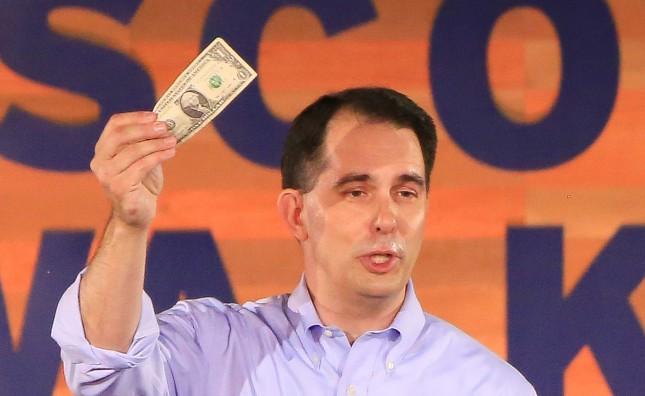Those who claim Republicans are anti-government and anti-education should see the budget approved by the Joint Finance Committee earlier this month. Republican lawmakers weren’t focusing on cutting government spending. Instead, they were debating over which programs to fund while also reducing the tax burden. They can do both because the state’s fiscal condition is stronger than ever.
The budget adds more funding for K-12 education, including an extension of vouchers to students with special needs. The University of Wisconsin system will also receive more money and tuition for in-state students will continue to remain frozen, thereby ensuring that students save more money. In order to keep the Wisconsin economy booming, the Joint Finance Committee passed a $74 million tax cut for businesses.
There have been plenty of tax reductions during Scott Walker’s governorship. During his presidential campaign, he highlighted that taxes have been lowered by $2 billion since he became governor. These across-the-board tax measures on income and property have generated a strong economy and have allowed hard-working Wisconsinites to keep more of what they earn.
In 2015, median household income grew by 5.6 percent and the poverty rate has been on a steady decline. In July, the unemployment rate was only 3.2 percent. A booming economy has allowed tax revenue to rise, allowing the state governor to actually raise spending. General purpose revenue spending in the 2015-2017 budget was $1.1 billion higher than the previous budget. This budget includes another spending increase. It is undeniable that Wisconsin is better off now than before Walker became governor.
What a contrast from Illinois, a state dominated by liberal politicians promoting anti-growth policies. In 2014, Republican Bruce Rauner was elected to clean the state’s disastrous financial condition, but that has been impossible with the deadlock created by state Democrats, who control both branches of the Illinois General Assembly. Whereas Wisconsin cleaned up significant budget problems with Act 10, there have no similar reforms in Illinois. The state now owes $250 billion in debt from pensions.
Illinois Democrats have had no interest in cleaning up their budget and making the state more taxpayer-friendly. As a result, Moody’s Investor Services downgraded the state’s credit rating and also warned that it could downgrade Illinois again in the future to junk status if their fiscal outlook does not change.
The solution by lawmakers in Illinois was to pass a budget that includes raising the income tax by nearly a third. Rauner vetoed the bill, but it was overridden. A tax hike is not a short-term answer to a long-term problem. The state might enjoy a surge in revenue, but the economy will continue to weaken and the hardworking people of Illinois have less money in their wallets. According to Pew Charitable Trusts, personal income growth in Illinois was one of the slowest in the country, growing 0.8 percent since 2007. Wisconsin’s has grown higher at 1.4 percent. Illinois is on a downward spiral because of these liberal policies and it doesn’t look like they’ll escape them anytime soon.
Many people will find it unfair to compare policies of Republicans and Democrats in only two states. In the rest of the country, however, states consistently run by Democrats are in poor fiscal situations. Every year the Mercatus Center, a think-tank at George Mason University, ranks all the states by fiscal condition. Only one of the top ten states with the best fiscal solvency has a Democratic governor.
Whether you compare Wisconsin with Illinois or red states with blue, the argument holds true in both cases: pro-market, pro-private sector policies guarantee a better future. States run by liberal lawmakers need to realize that if they want greater economic growth.
John Graber (jgraber3@wisc.edu) is a senior majoring in history and political science.


